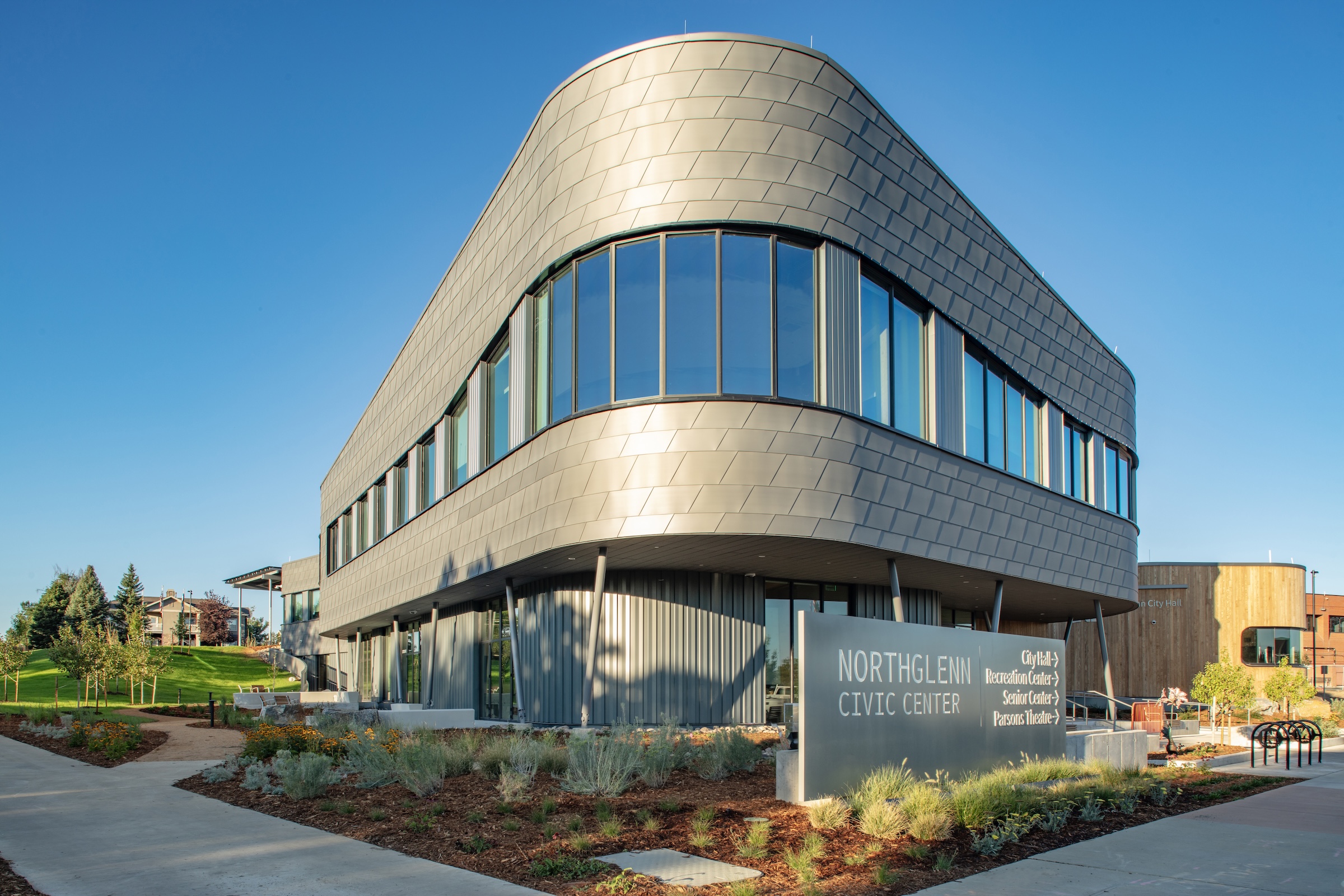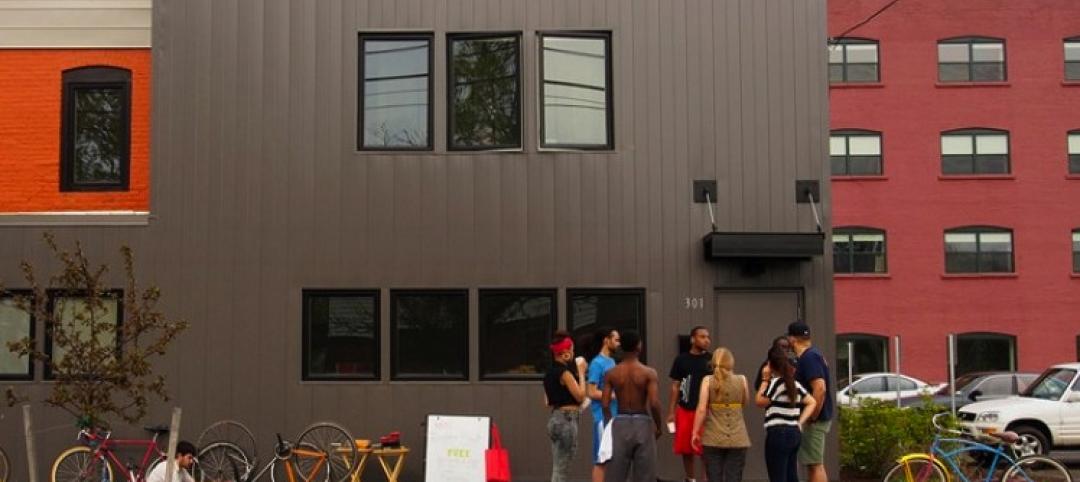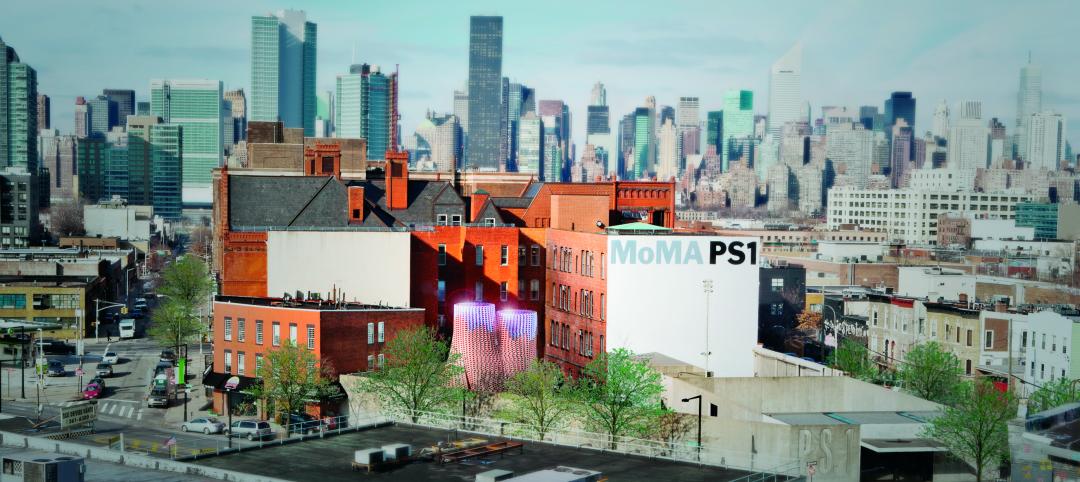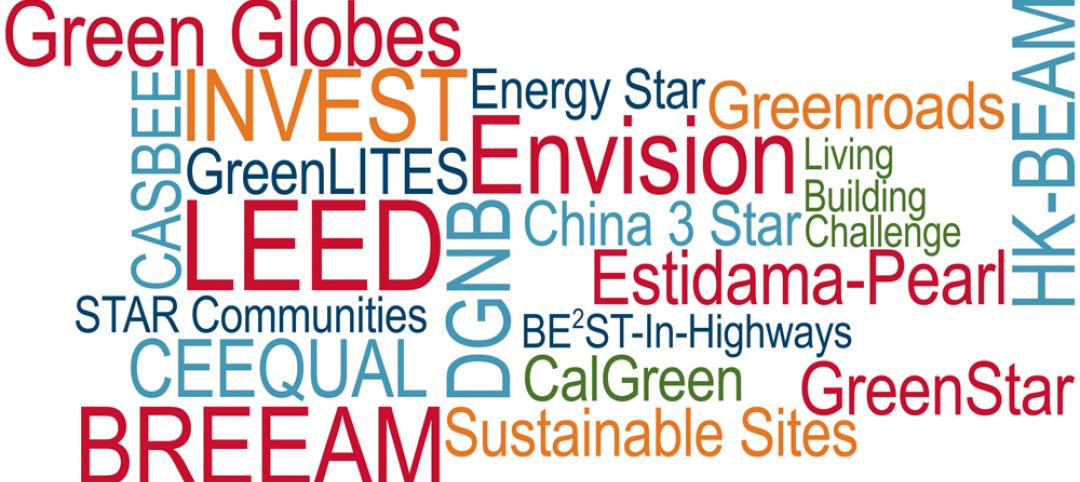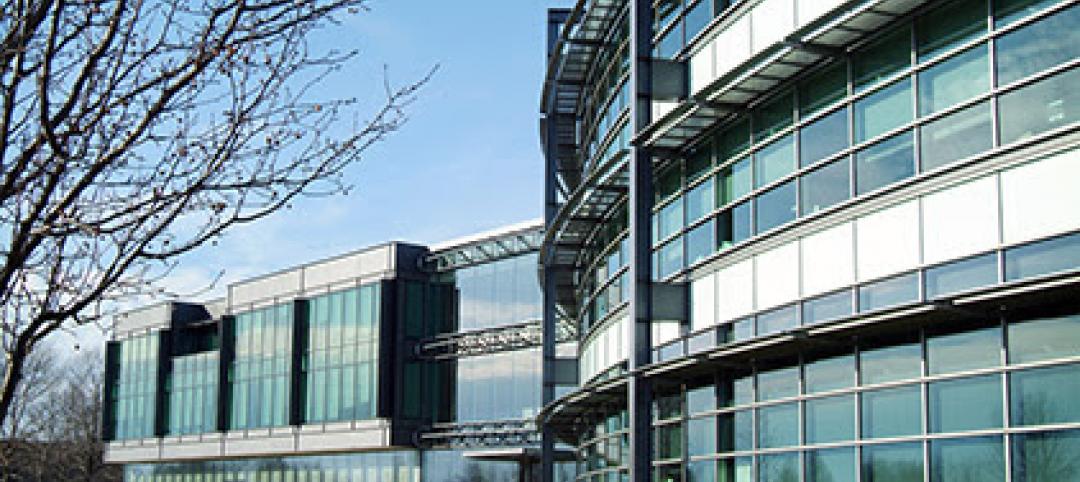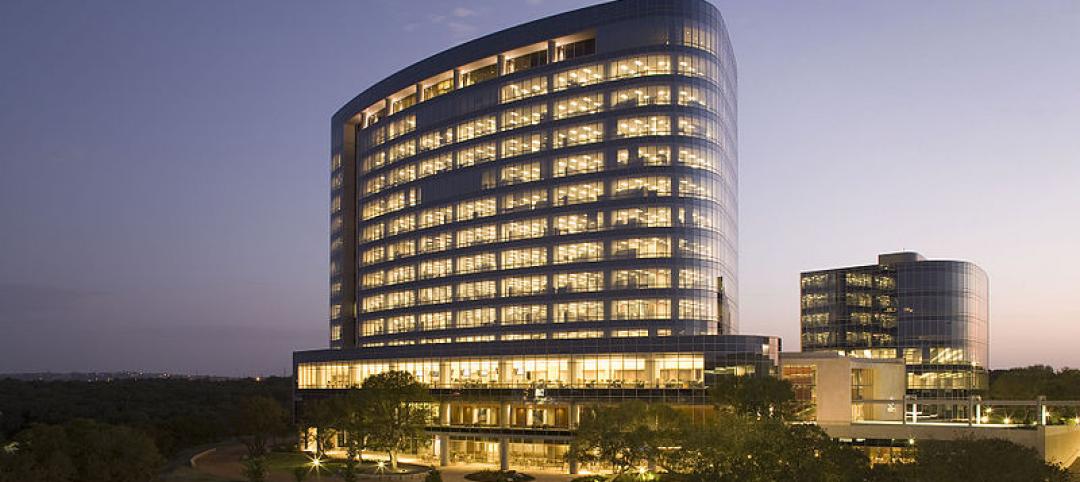Northglenn, Colo., a Denver suburb, has opened the new Northglenn City Hall—a net zero, fully electric building with a mass timber structure. The 32,600-sf, $33.7 million building houses 60 city staffers.
Designed by Anderson Mason Dale Architects, Northglenn City Hall is set to become the first municipal building in Colorado, and one of the first in the country, to achieve the Core certification: a green building rating system overseen by the International Living Future Institute.
The project boasts numerous sustainability features. Running entirely on electricity, Northglenn City Hall features 476 solar panels that are expected to generate at least as much energy as the building consumes annually. There are nine EV-charging stations, with eight more future-ready spots.
While the building’s timber structure reduces embodied carbon by 41%, about one-fifth of the building materials were sourced within 310 miles, helping to reduce CO2 emissions from transportation and shipping. In addition, 80% of construction waste was diverted from landfill.
As a result of the project’s emphasis on biophilic design, four-fifths of occupants have views of the outdoors and daylighting. Native plants reduce water use by over 70% compared to traditional landscaping, and the irrigation relies completely on non-potable water collected from rain and snow.
The project team deployed universal design principles to ensure individuals of all abilities feel comfortable and welcome in City Hall. The team also prioritized products with Declare labels, which Living Future describes as “a nutrition label for building products” that helps identify healthy materials and avoid harmful chemicals.
Northglenn City Hall’s community rooms can be reserved for public use, and its entry lobby, which showcases public art installations, can serve as a pre-function space for community events.
On the building team:
Design architect and architect of record: Anderson Mason Dale Architects
MEP engineer: The Ballard Group
Structural engineer: KL&A Engineers & Builders
General contractor: FCI Constructors
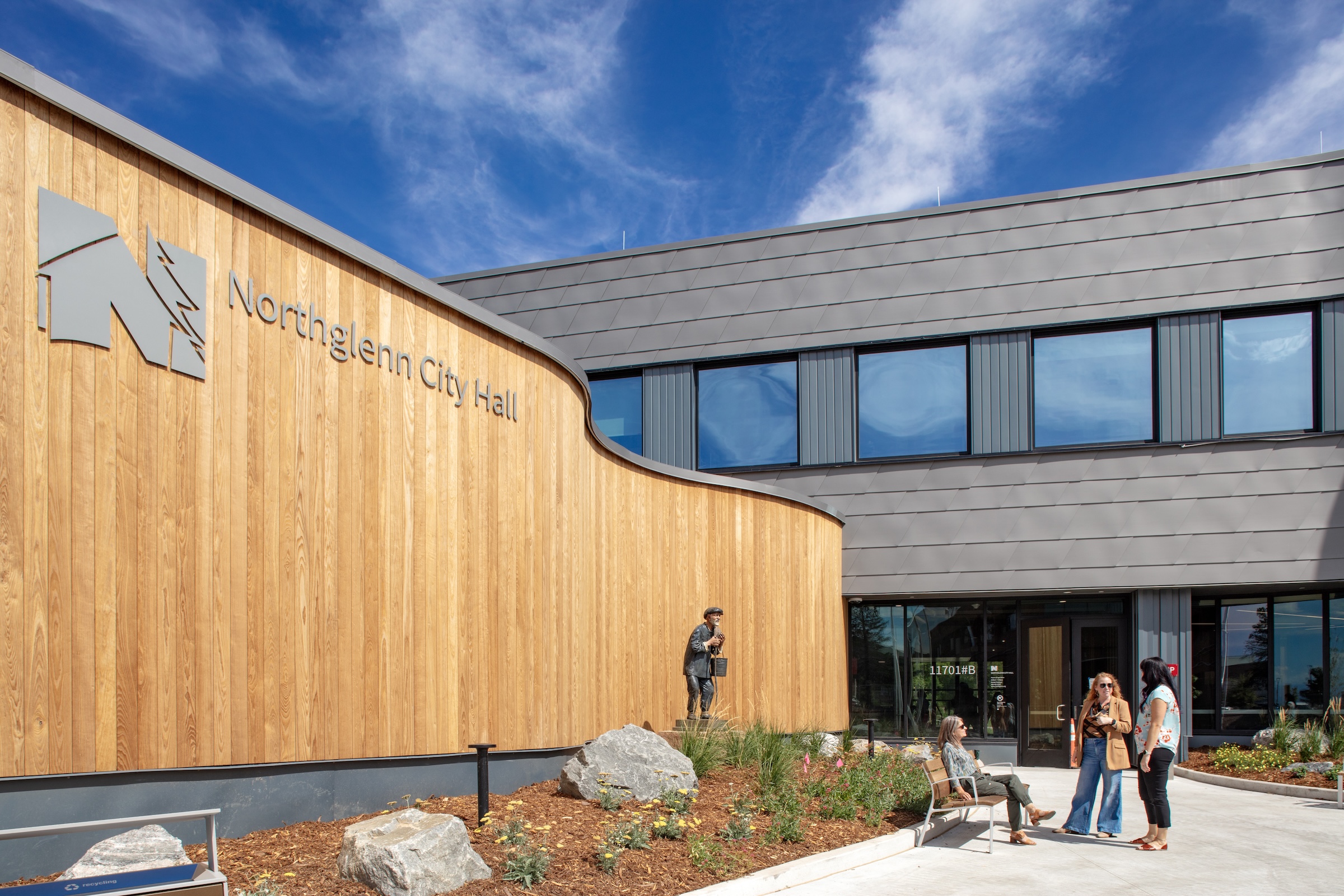
Here are additional facts about Northglenn City Hall:
- First CORE Certification: The building is set to become the first CORE-certified municipal building in the State and one of the first in the country.
- CORE Certification: Overseen by the International Living Future Institute, CORE is a green building rating system similar in ambition to LEED Platinum but emphasizes actual building performance over a checklist approach.
- Sustainable Materials: 20% of materials were sourced within 310 miles. The farthest-traveled material is the All-Wood Mass Timber Structure, from Quebec, Canada, saving 50% in embodied carbon.
- Material Transparency: Many products used “declare labels,” showing they are free from harmful chemicals.
- Embodied Carbon Savings: The carbon savings is equivalent to the carbon of 621 acres of forest for a year, or about 30 Northglenn Civic Center Campuses.
- Solar Power: The building features 476 solar panels generating 195 KW annually.
- Net-Zero Energy: It runs entirely on electricity with no natural gas, and the solar panels are expected to produce as much or more energy than the building consumes annually.
- High Efficiency: The exterior is highly efficient, with double-paned low-e coated glass and an R-Value of R-20.
- Sustainable Materials: The exterior uses Zinc and Thermally Modified Wood, which are natural, durable, and processed without harmful chemicals.
- Zero Fertilizers/Pesticides: The landscaping uses no petrochemical fertilizers or pesticides.
- EV Charging: Nine EV charging stations are installed with eight additional future-ready spots.
- Non-Potable Water: Irrigation uses 100% non-potable water collected from rain and snow.
- Water-Efficient Landscaping: Native and xeric plants reduce water use by over 70% compared to traditional landscapes.
- Nature Integration: The design incorporates natural elements to improve wellbeing, reflecting research on the health benefits of exposure to nature.
- Funding: The $33.7M for City Hall was in-hand before construction. The funding was generated by the .5% sales tax and the 4% Special Marijuana Tax, both of which can only be used for capital projects.
- City Services: The 60 city staff in the building provide services such as utility billing, permits and passports. Departments housed in City Hall include City Council, City Manager, City Clerk, Finance, Planning, Building, Economic Development, Human Resources, Parks/Rec/Culture Administration and Communications (which includes events and engagement).
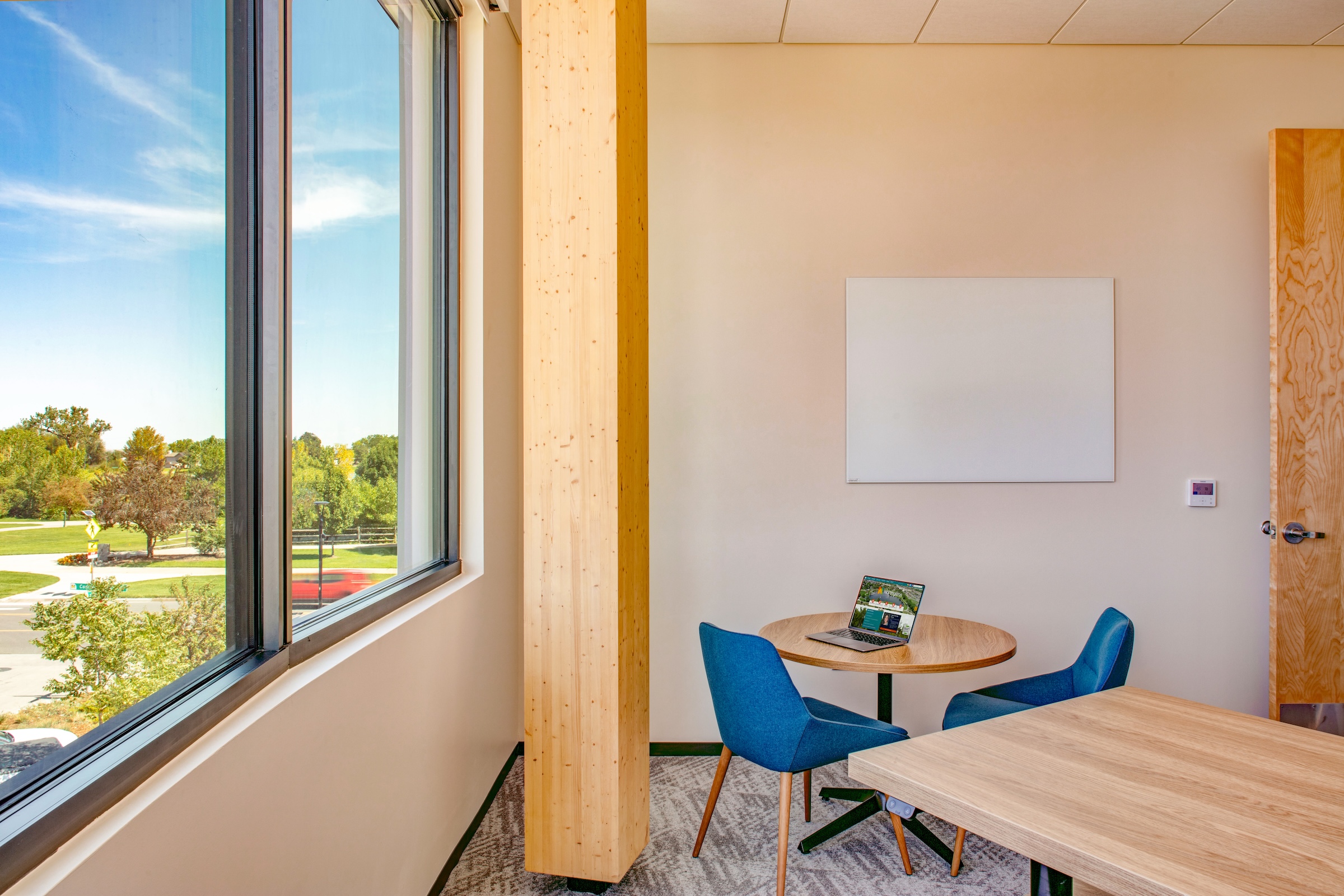
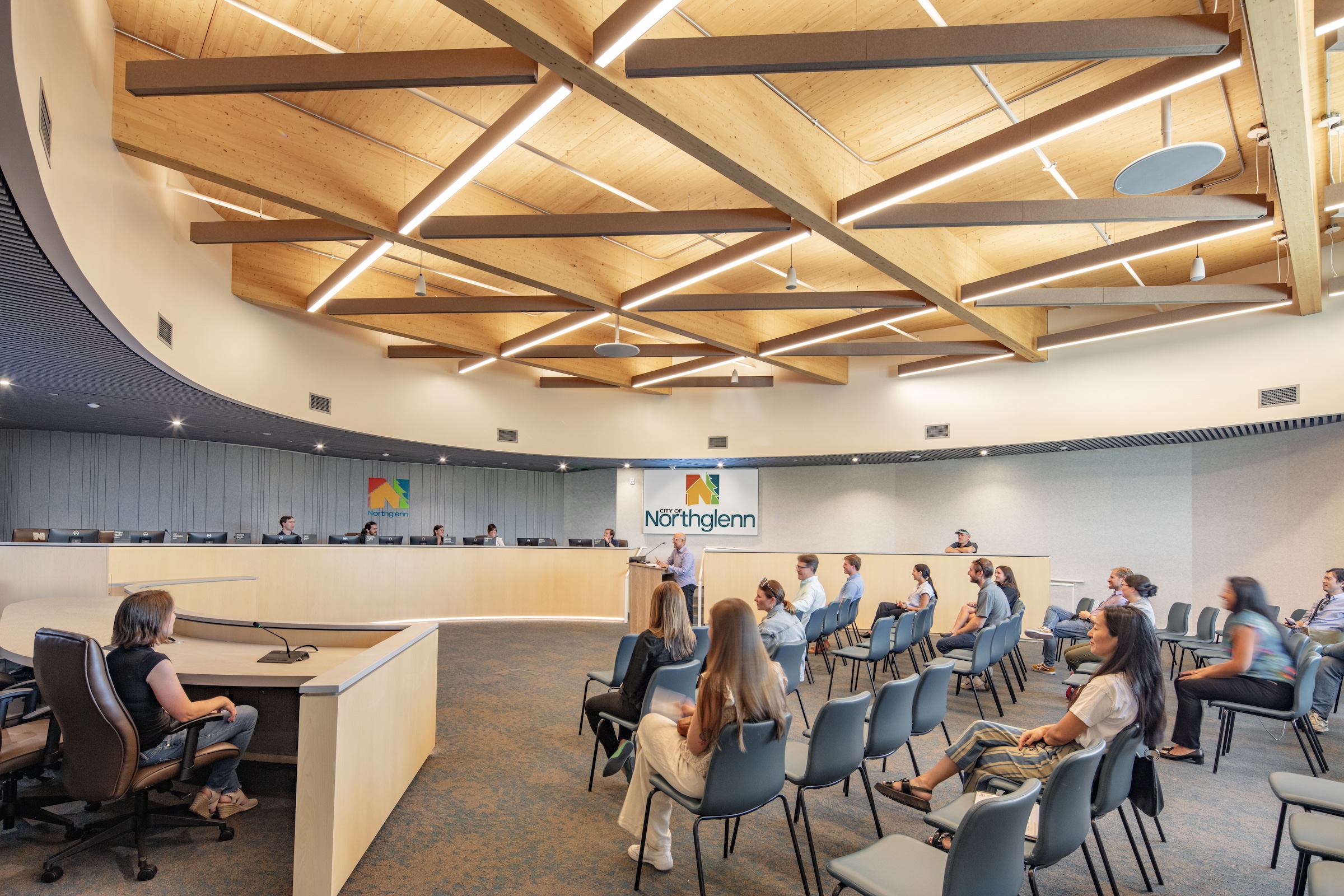
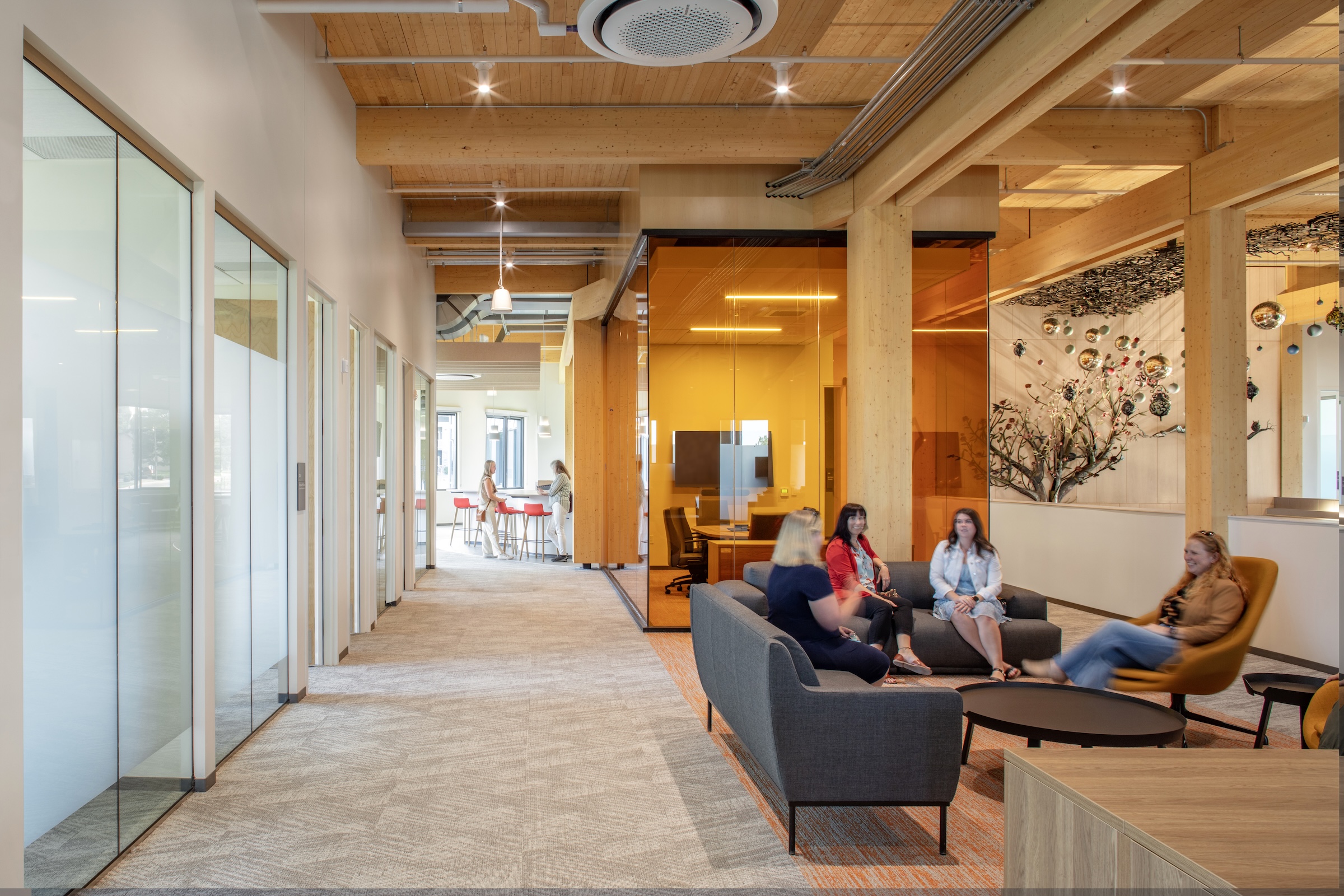
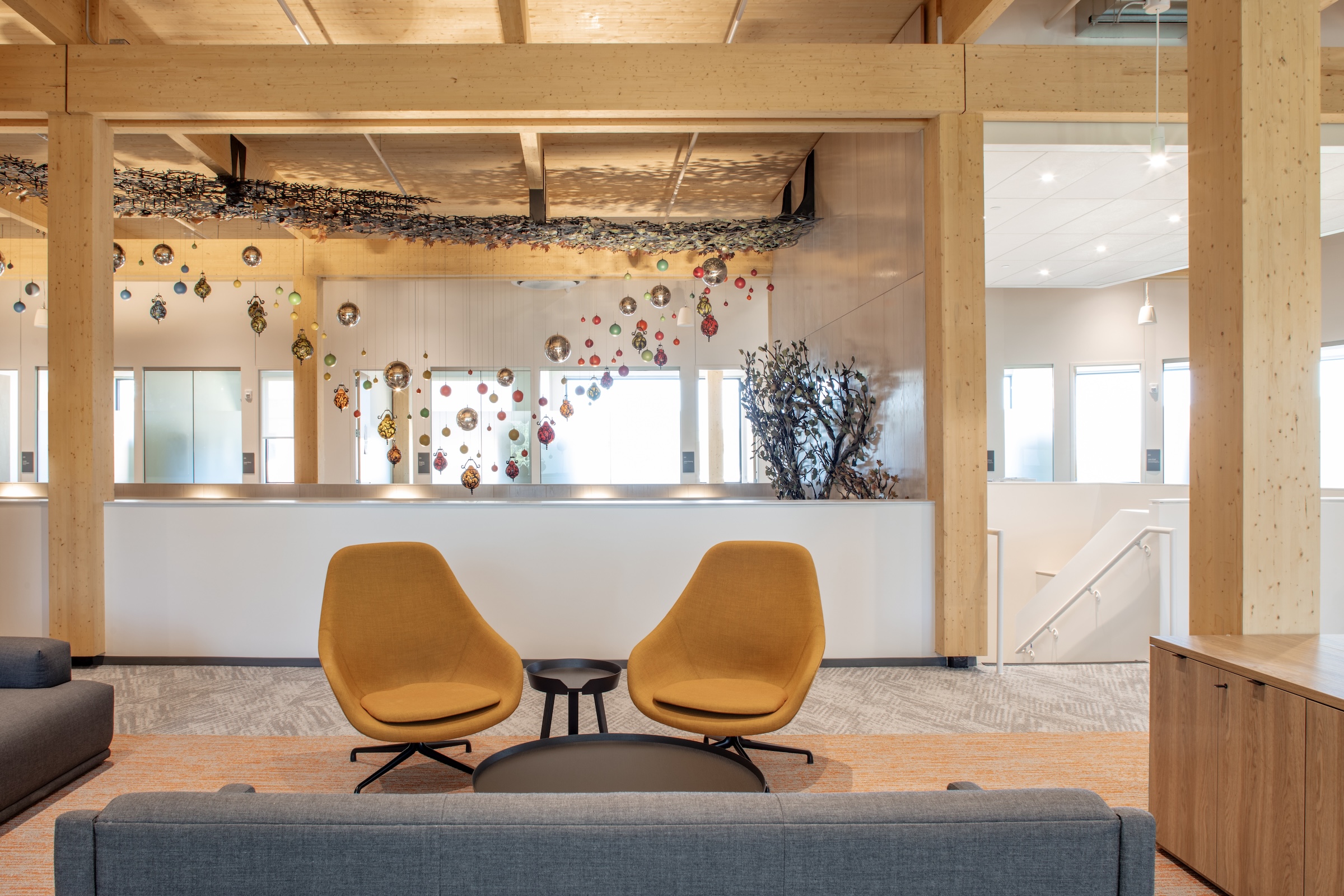
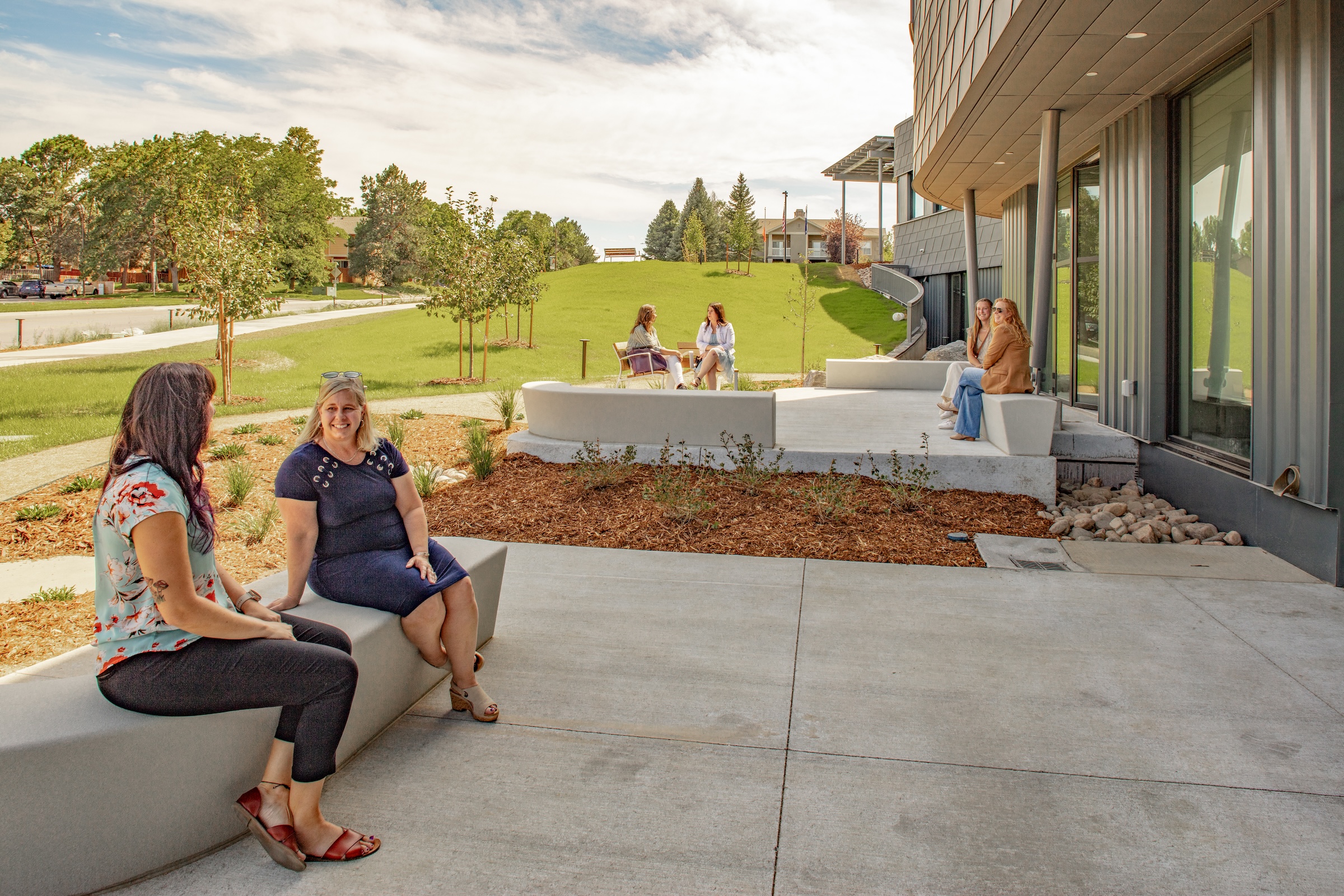
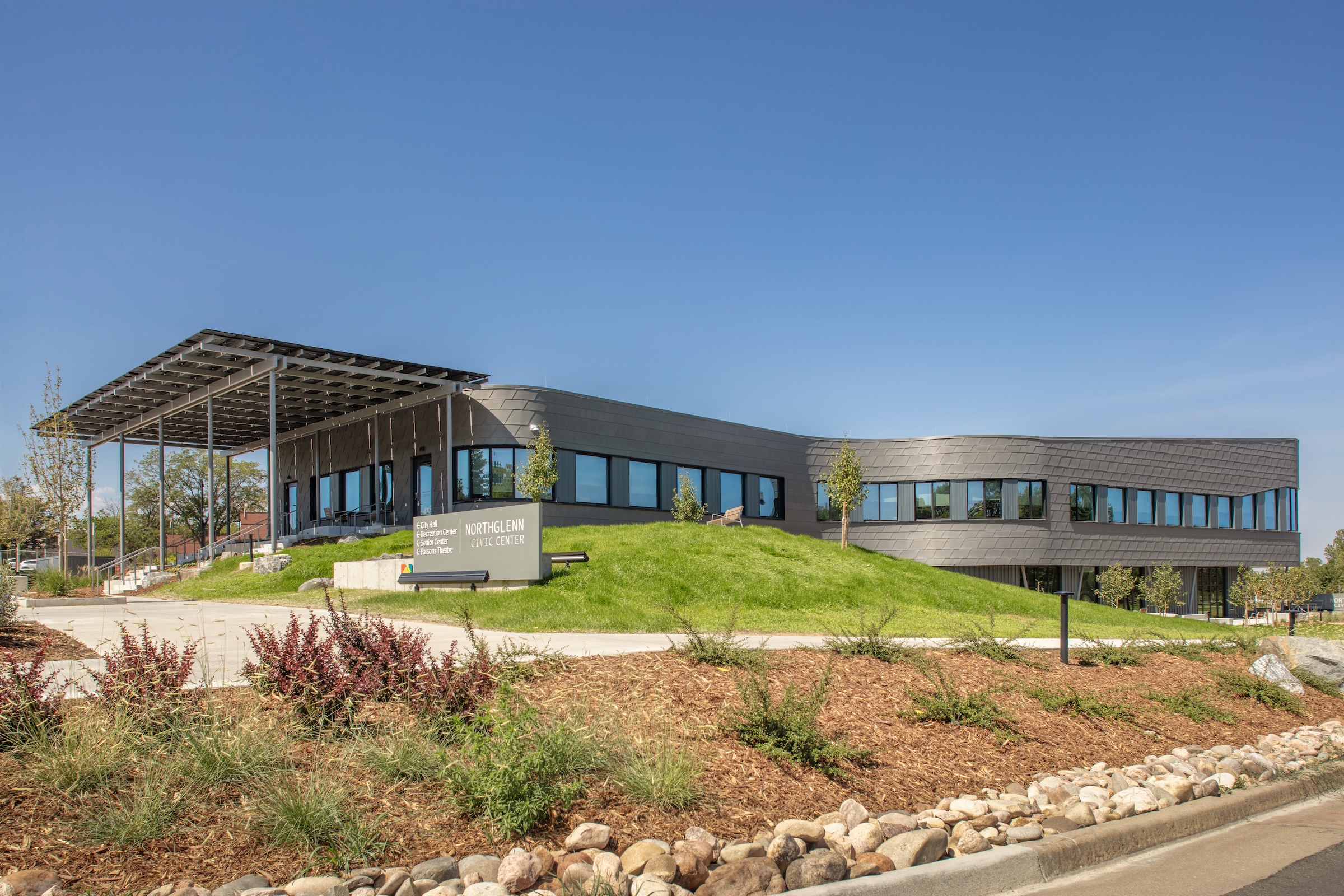
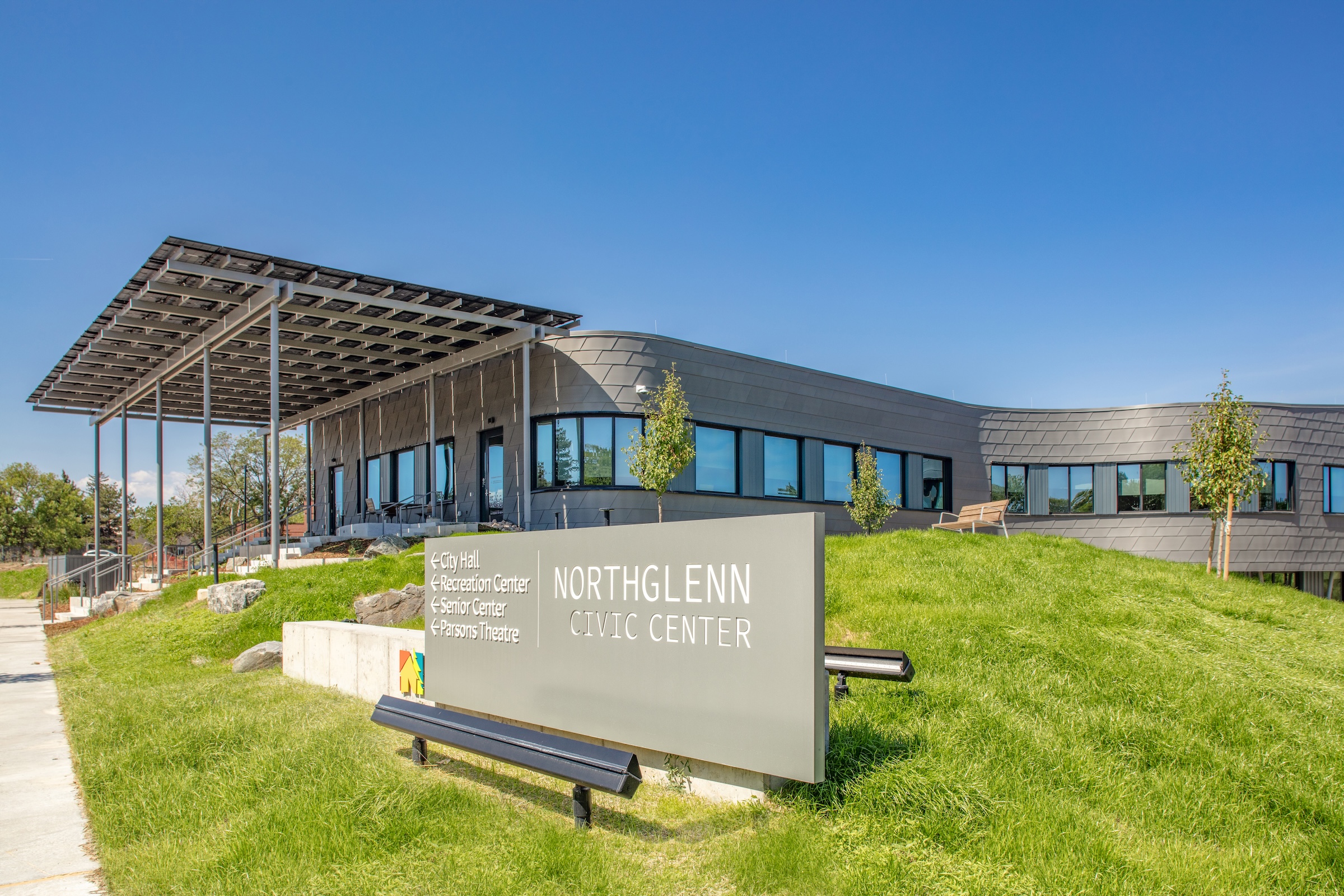
Related Stories
| Oct 16, 2014
Perkins+Will white paper examines alternatives to flame retardant building materials
The white paper includes a list of 193 flame retardants, including 29 discovered in building and household products, 50 found in the indoor environment, and 33 in human blood, milk, and tissues.
| Oct 15, 2014
Harvard launches ‘design-centric’ center for green buildings and cities
The impetus behind Harvard's Center for Green Buildings and Cities is what the design school’s dean, Mohsen Mostafavi, describes as a “rapidly urbanizing global economy,” in which cities are building new structures “on a massive scale.”
| Oct 14, 2014
USGBC awards individuals, firms for leading the way in sustainable construction
This year’s Leadership Award recipients include Christine Ervin, David Orr, Jim DeCesare, Lloyd Alter, Tom Paladino, The Near Westside Initiative, and Mars, Inc.
| Sep 29, 2014
Organically grown bricks, urban flood control system among 2014 Holcim Award winners
The 13 Holcim Award winners for North America illustrate how sustainable construction continues to evolve.
| Sep 29, 2014
Report finds links between office design, health and productivity
A new report from the World Green Building Council finds “overwhelming evidence” to support office design as a significant influencer of the health, wellbeing and productivity of staff.
| Sep 16, 2014
Studies reveal growing demand for LEED-credentialed professionals across building sector
The study showed that demand for the LEED Accredited Professional and LEED Green Associate credentials grew 46 percent over a 12-month period.
| Sep 15, 2014
Sustainability rating systems: Are they doomed?
None of the hundreds of existing green building rating systems is perfect. Some of them are too documentation-heavy. Some increase short-term project cost. Some aren’t rigorous enough or include contentious issues, writes HDR's Michaella Wittmann.
| Sep 12, 2014
Armstrong first in Pennsylvania to earn LEED Platinum recertification from USGBC
The Armstrong facility is the first building in Pennsylvania and among only 17 buildings globally to achieve recertification at the highest level possible under USGBC’s LEED-EBOM program.
| Sep 7, 2014
USGBC + American Chemistry Council: Unlikely partners in green building
In this new partnership, LEED will benefit from the materials expertise of ACC and its member companies. We believe this has the potential to be transformational, writes Skanska USA's President and CEO Michael McNally.
| Sep 3, 2014
New designation launched to streamline LEED review process
The LEED Proven Provider designation is designed to minimize the need for additional work during the project review process.


